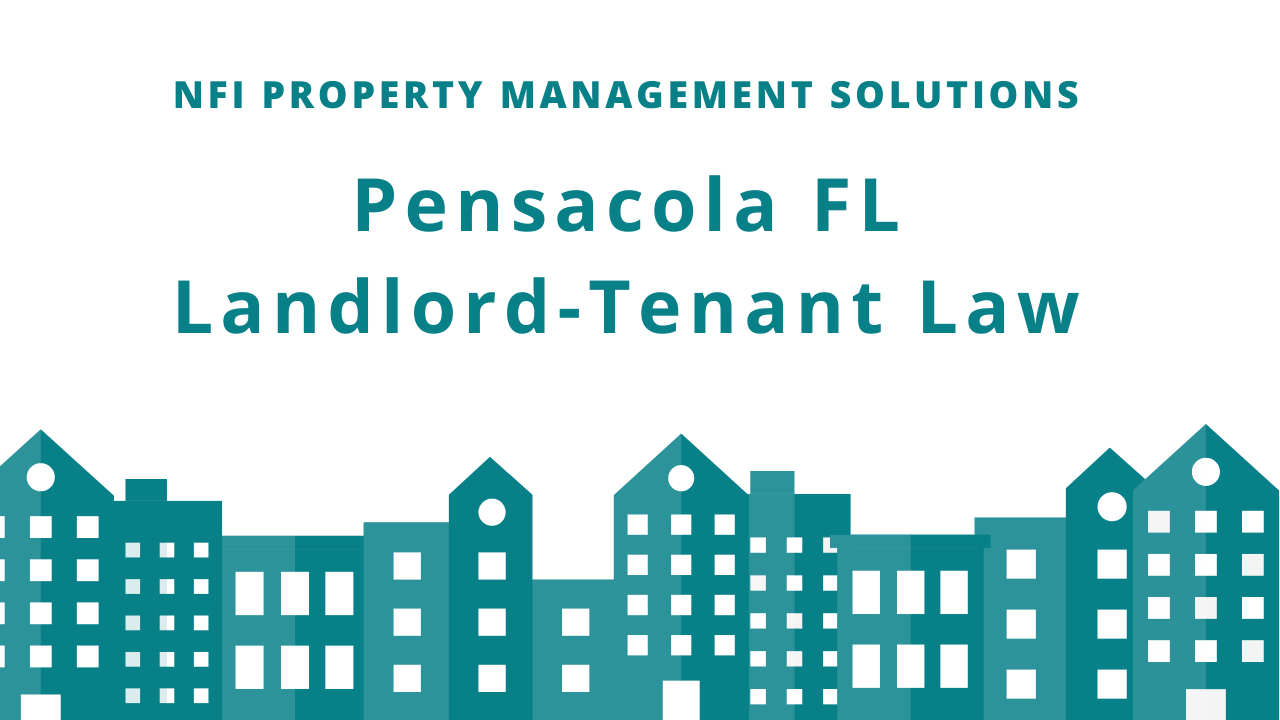
Are you just getting started as a landlord in Florida? Or, are you a seasoned landlord with an expansive investment portfolio? Whatever stage you’re at in your career as a landlord, you need to keep up to date with the Florida law. This law, part of the tenant act, outlines the landlord-tenant legal rights and responsibilities of both parties.
As landlords, being knowledgeable about your legal responsibilities and when you need to provide notice to your renters is crucial. For instance, providing the landlord's address in your lease agreements is a requirement that ensures clear communication.
It’ll not only ensure smooth tenancies but will help you avoid getting into legal disputes with your renter. Addressing disputes promptly can also help you avoid incurring unnecessary attorney fees.
Additionally, landlords have a responsibility to maintain the premises to ensure it remains safe and habitable for tenants. Similarly, understanding the rules surrounding personal property left behind on the premises by a tenant, filing a landlord's claim when appropriate, and properly managing possession of the premises after a lease ends are critical aspects of Florida landlord-tenant law.
If a landlord fails to meet their legal obligations, tenants may recover reasonable attorney fees and even double the monthly rent in some cases. Conversely, a landlord who prevails in court may be entitled to the recovery of her court costs as part of the judgment. Both parties, however, must remain compliant with their responsibilities to avoid unnecessary disputes.
The following is a basic overview of Florida Landlord Tenant Law for the parties involved.
Required Landlord Disclosures in Florida
Federal, state and local laws require that landlords make certain disclosures to their tenant. The following are the disclosures you must provide to your renter prior to them moving in.
Lead-Based Paint
This is a requirement for rentals built prior to 1978. Federal law requires that landlords provide their renter with a disclosure about the use of lead-based paint on the rental unit.
Radon Gas
This is a state-required disclosure. Per Florida law, landlords need to notify their renters with information regarding radon gas, whether or not it’s in or near your unit. The disclosure is also required to contain certain language that’s provided by the state.
Security Deposit Holdings
This is also a state-required disclosure or notice meant for landlords who require a security deposit. The deposit holdings disclosure is applicable to those managing at least 5 units.

Authorized Authorities
The Florida statues requires that landlords provide their tenants with the property owners’ names and addresses.
Florida Tenant Rights and Responsibilities
Once a tenant signs a written agreement, they obtain certain rights and responsibilities per Florida Landlord Tenant Laws. The following are some of the Florida tenant rights provided by the Florida Statutes Chapter 83.
The right to:
- A proper eviction process as outlined under Florida’s tenant eviction laws.
- Live in peace and quiet on the premises, away from unnecessary noise or disruptions.
- Received reasonable notice prior to a landlord entry.
- Have repairs completed within a reasonable period of time.
- Live in a safe dwelling that abides by health laws and ordinances.
- Be treated fairly without discrimination on the basis of a protected characteristic.
When it comes to responsibilities, here’s what a landlord's tenant will need to do under Florida Landlord Tenant Laws.
- Serve the landlords with proper notice prior to moving out of the rental property.
- Make periodic rental payments and the correct amount for the security deposit per the lease agreement.
- Allow reasonable entry when the landlords seek to enter the rental.
- Keep their rental unit in a clean and sanitary condition and maintain rental, as per the rental agreement.
- Report maintenance issues whenever they arise on the premises.
- Abide by all rental policies while they rent your unit, including pet allowances and subletting rules.
- Keep noise at a reasonable level.
- Give the landlords notice whenever they will be out of town for an extended period of time.
Landlord Rights and Responsibilities in Florida
Similarly, landlords also has certain rights and responsibilities under Florida landlord tenant laws.

When it comes to rights under Florida statues, they are as follows. The right to:
- Evict tenants who do not pay rent or failing to abide by the terms of the agreement.
- Enter the dwelling unit to perform crucial landlord responsibilities.
- Not renew a renter’s tenancy rental agreements when the rental period comes to an end.
- Receive periodic payments of rent during a renter's tenancy.
- Enforce the terms of the agreement should a renter refuse to pay rent or a renter doesn't pay the full rent.
- Make changes to the terms of the rental agreement when the existing contract comes to an end.
- Require a tenant to pay a security deposit before moving into the rental unit or premises.
Per Landlord Tenant Laws, landlords are responsible for:
- Following the step-by-step eviction process as set out by law, including giving tenants notice to vacate the unit.
- Abiding by all terms of the written rental agreement.
- Complying with health codes and safety.
- Treating tenants with respect and fairness.
- Making requested repairs within a reasonable period of time.
- Providing their renter written notice prior to entering their unit.
- Ensuring their tenant enjoys peace and quiet by minimizing or removing causes of noise, disturbances or other disruptions.
An Overview of Florida Landlord Tenant Law
Tenant Evictions
One of the rights landlords obtain under Florida law is renter eviction. A landlord can terminate the lease and begin the process in county court only if they have a just cause. Additionally, this process may have implications for future rent payment periods, as tenants may still be held responsible for unpaid rent during the remaining term of the lease. Just causes include:
- Nonpayment of rent or unpaid rent during a tenancy.
- When the lease agreement or rent period has ended but the renter won’t leave.
- If the tenant fails to abide by the terms of the existing rental agreement or written lease while they rent a unit.

If your renter has committed any of these actions, you need to serve them a written notice in order to terminate the rental agreement and begin the eviction process. After having given a tenant notice to terminate the unit, a florida residential landlord may then proceed by moving to court if the tenant doesn’t oblige the notice. Serving the notice or notices as required by the law will help you in court, should you need to argue your case.
Please note that “self-help” eviction is illegal. You can't do things like shut down the utilities, lock out the renter while they're renting from you, or remove their personal property from the rented premises while they rent it in order to recover possession of the unit. Associated court fees, such as a landlord's attorney, will also be yours to cover even if you notify the tenants accordingly.
Security Deposits
You have a right to request a security deposit payment from your Florida tenants while they rent the premises. This money from security deposits can be used for property repairs for unexpected damages done by a tenant. Be that as it may, Florida landlords must comply with certain security deposit laws. Some of the rules state that:
- Florida landlords must store their tenant’s security deposit money in one of three ways. These are, in an interest-bearing bank account, a non-interest bearing account, or by posting the deposit as a surety bond.
- A landlord must provide written notice to their tenant within 30 days after receiving their deposit.
- A landlord must not withhold rent and return the tenant’s deposit, or whatever remains of it within 15 days of their moving out.
Early Lease Termination
A tenant can break their lease early without penalty for legally justified reasons. Valid termination of rental agreement can occur:
- If there's an early lease termination clause
- If the tenant is relocating for active military duty
- If the landlord fails to meet standard housing and health codes in the dwelling unit
- If there is a privacy violation under law
- If the landlord fails to comply with the terms of the rental agreement
Housing Discrimination
The Fair Housing Act protects tenants against discrimination on the basis of some protected classes.

The protected characteristics per the state's statutes are as follows.
- Race
- Color
- Sex
- Nationality
- Religion
- Familial status
- Disability
- Sexual orientation
- Gender identity
- Sickle cell trait
- Age
- Citizenship status
- Genetic information
Bottom Line
As a Florida landlord, it's critical to be well versed in Florida’s landlord tenant laws to maintain a good relationship between a landlord and tenant. They are there to protect both the landlord and the tenant. However, keeping up to date on legal amendments and Florida statues can be stressful!
If you have questions or concerns about Florida’s Landlord-Tenant regulations, reach out to NFI Property Management Solutions today!
Disclaimer: This blog isn’t a substitute for expert legal advice. Also, Florida statutes and laws change and this post might not be updated at the time of your reading. If you have any legal questions or concerns please reach out to a licensed attorney.